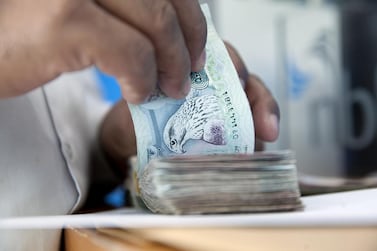When I supply a service to someone in Kuwait, I currently do not charge VAT on the invoice. My understanding is that the onus is on the recipient of my service, the buyer, to do the disclosure through the reverse charge mechanism in their country. Is this correct? RF, Abu Dhabi
Unfortunately your understanding is not entirely correct. You don’t specify in your question the nature of the services you provide, but it is likely that your service would be considered to be an export of services. I encourage you to read through Article 31 of the Executive Regulations to the Decree Law, which covers export of services and stipulates that, in most cases, exported services should be taxed at the zero rate of VAT.
This will change over time as GCC countries implement VAT and integrate their systems. Once this is in place, you would not include VAT on your invoices to Kuwait, or other GCC entities. Your services will be outside of scope of UAE VAT and the service would be taxable in the receiving state, with the recipient accounting for the tax under the reverse charge mechanism.
The Supreme GCC Council took the decision to implement VAT in the six GCC countries in 2016 and Kuwait is thought to be implementing the tax in 2021. The UAE and Saudi Arabia both introduced VAT at the start of 2018 and to date they have not yet integrated their VAT reporting systems, so services performed by a UAE entity to a Saudi recipient are still taxed as an export. Once that changes, there will be announcements in the media and you will see changes in GCC reporting requirements in your VAT returns.
If a retail landlord gives a tenant a rent-free period of three months, is the landlord liable to pay VAT for the free period even though the tenant is not invoiced for the three months? For example, where the annual rent is Dh1.2 million but the landlord offers a three-month, rent-free period, the tenant can occupy the property for 15 months and only pay for 12. How much VAT does the landlord then need to pay? VM, Dubai
Many landlords offer rent-free periods as an inducement for a new tenant to occupy their property. While it is called a “rent free” period, it is effectively a discount, where the price for a 15-month period is discounted to the standard 12-month price. The VAT legislation around the treatment of discounts is included in Article 28 of the Executive Regulations to the Decree Law. The law says the value of the supply may be reduced in the case of a discount if two conditions are both met: that the customer has benefited from the reduction in price, and the supplier funded the discount. A rent-free period clearly satisfies both of these conditions, therefore the VAT treatment follows that for a discount.
The value of the supply in this case is Dh1.2m and this is the consideration the landlord needs to account for output VAT. He/she does not need to make any adjustment to the value of the supply and pay more VAT because of the rent-free period offered.
My company owns a commercial warehouse, which we are planning to rent out in the near future. We expect the annual rent will be less than Dh375,000. My company's turnover from its operational activities of machinery trading meets the mandatory VAT registration threshold of Dh375,000. If the warehouse rental income is less than Dh375,000 per year, do I have to charge VAT? SM, Dubai
The answer to your query is a definitive yes, you do have to charge VAT on the warehouse rent. Article 2 of the Decree Law states that tax should be imposed on every taxable supply and deemed supply made by a taxable person. Although renting a warehouse is not one of your core activities, and the rent alone is below the mandatory VAT registration, this is irrelevant when determining if it is taxable. Once registered for VAT, you are a “taxable person” and need to include all your taxable activities and revenue in your VAT returns regardless of the individual monetary amounts or part of the business. Once you have registered for VAT, even if your total taxable supplies for a year falls below the mandatory threshold, you still need to charge the tax and file quarterly returns until you later de-register.
Lisa Martin, a chartered accountant with more than 20 years' commercial finance experience, is the founder of accounting, auditing and VAT consultancy, The Counting House. Email any VAT queries to pf@thenational.ae








